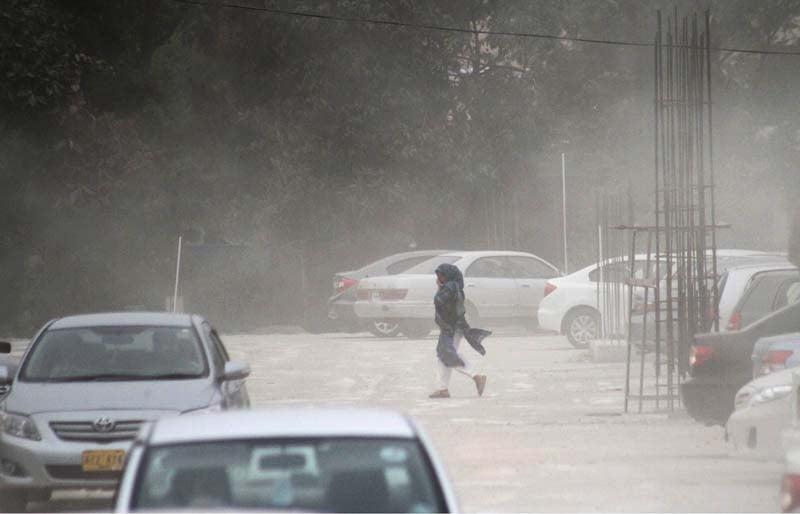
Scattered light rain coupled with gusty winds brought temperatures down two to three degrees. Dust storms hit some parts of the twin cities early in the afternoon and continued for a short period.
Talking to The Express Tribune, Dr Ghulam Rasul, chief meteorologist at Pakistan Metrological Department (PMD), predicted that the current rain spell would continue till May 13 in patches and would further bring down mercury levels.

He said following May 13, however, the temperature in the twin cities was expected to cross 40 degrees centigrade.
“This summer it is expected that the residents of the twin cities will not have to face a long dry spell as after every 10 to 12 days moderate rain showers are expected, which will maintain the temperature and bring relief,” Rasul said.
He further said that this summer the maximum temperature in the twin cities would remain between 40-43 degrees centigrade.
According to the PMD, rain and thunderstorms associated with gusty winds are expected at scattered locations in Islamabad, Upper Punjab (Rawalpindi, Sargodha, Faisalabad, Gujranwala, Lahore, Sahiwal divisions), Fata, K-P (Malakand, Hazara, Peshawar, Kohat, Mardan, Bannu divisions), Kashmir and Gilgit-Baltistan, while at isolated places in Quetta, Zhob, Mirpurkhas, Sukkur, DG Khan, Bahawalpur and DI Khan divisions in the next 24 hours.
Protection against allergies
The rain also helped settle dust particles along sections of the route of the metro bus project where construction work is still under way.
A senior physician at the Pakistan Institute of Medical Sciences (Pims) who wished not to be named said the rain would help settle dust particles in the atmosphere which had caused allergies and upper respiratory chest infections among locals since construction work on the metro bus began.
“The ongoing work especially starting from Peshawar Mor to Zero Point has become a real problematic area for residents due to the massive dust pollution. So even light rain is a blessing for people who have to use this route everyday,” he said.
The physician also urged health officials to speed up efforts to eliminate dengue larva sites as accumulation of rainwater would otherwise provide dengue mosquitoes a favourable breeding ground.
Published in The Express Tribune, May 12th, 2015.

















COMMENTS
Comments are moderated and generally will be posted if they are on-topic and not abusive.
For more information, please see our Comments FAQ